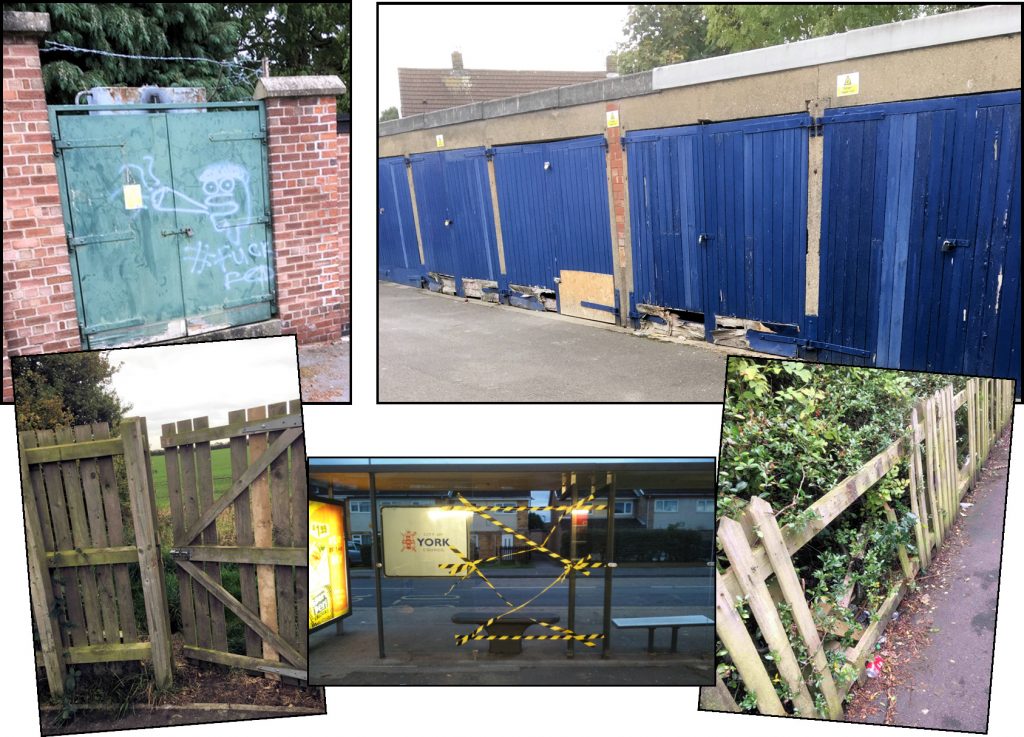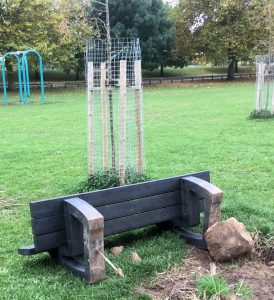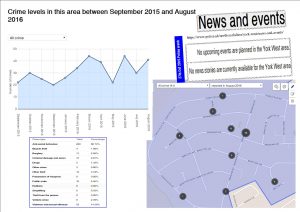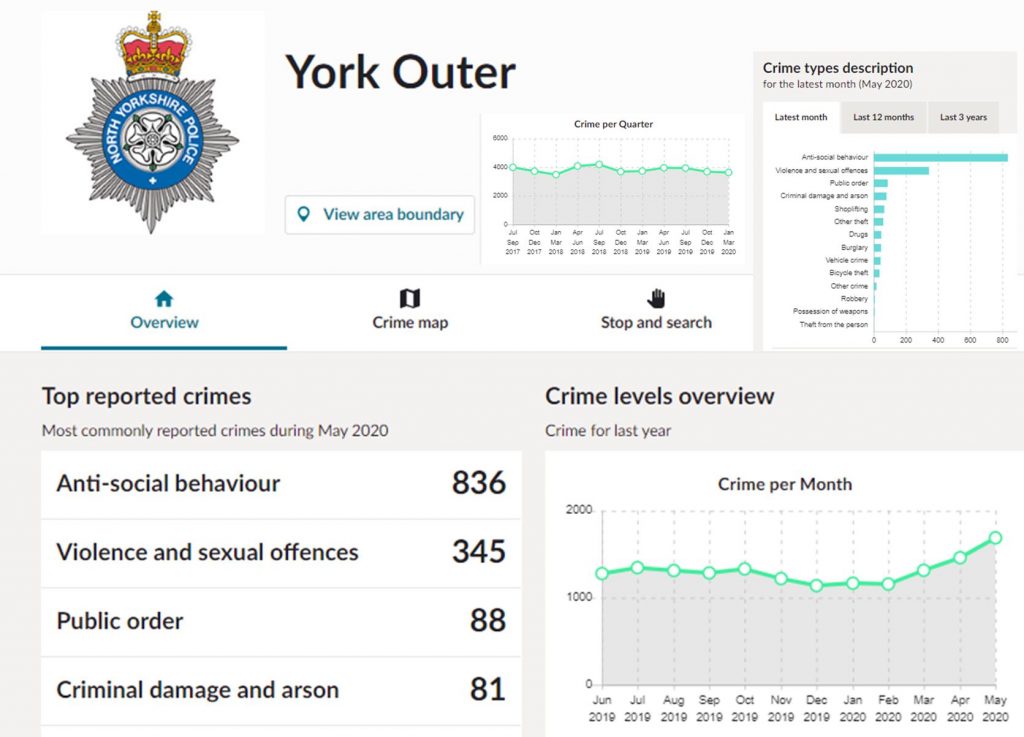Many residents are becoming frustrated with the decline in public order in the City.

Recent vandalism reports
While some may put the change down to the “yobfest” culture surrounding the Brexit vote, in reality it is more the lack of high profile policing on our streets that is to blame for the petty crime, vandalism and anti-social behaviour we are seeing. So, where does responsibility for community safety lie?
Currently Amber Rudd MP. Has overall responsibility for policing in the UK. Sets government grant levels and some police conditions (but not local policing priorities)
Currently Julia Mulligan. A Tory politician directly (re) elected a few months ago, albeit against some pretty poor quality opponents and on a very low turnout. She says she is accountable for “how crime and community safety is tackled throughout the county of North Yorkshire and the City of York”. Currently consulting on a new “Policing Plan” Click here Has a complicated web site but seems to have realised recently that only the use of social media could actually engage people across as large an area as North Yorkshire. Has been criticised for fronting high profile national campaigns – on worthy but minority issues – at the expense of core concerns like neighbourhood crime. Markedly “rural” in her priorities largely ignoring York (which suffers over 30% of reported crime). She recently appointed a Deputy which will significantly increase the expenditure of the PCCs office.

Vandalism on Chesney’s Field
Holds the Commissioner “to account”. Comprised mostly of Tory Councillors. Is supposed to meet in public but you’d be hard pressed to find an evidence that it proactively advertises its meetings (or other activities for that matter). Mainly deals with complaints about the PCC but nods through policing plans, appointments and taxation level proposals The meetings are listed by the County Council web site (click) but not by the City of York Council The last panel meeting did receive a report on reducing Crime and ASB.
Dave Jones was appointed Chief Constable of North Yorkshire Police on 3 June 2013. Has a low profile in York (compared to his predecessor)? Is responsible for deployment of resources and police tactics. Has been criticised for the decision to centralise Anti-Social Behaviour work into the West Offices in York. Ultimately it would be his call whether to reintroduce “community constable” type systems which were very effective in the last decade.
Neighbourhood Policing Teams

Crime increasing, communications reducing
In the past local police and PCSOs have formed part of neighbourhood teams. They regularly used to meet with Ward Councillors, resident’s groups and other agency partners. They do have social media access with the York West team “tweeting” quite regularly (@snayorkwest) Confusingly the neighbourhood policing team for Westfield Ward is now called York South. There are no named officers specialising in the Ward (or any other ward for that matter) although the City centre alcohol economy is clearly a drain on resources. https://northyorkshire.police.uk/neighbourhoods/york-city-south/ There are no events publicised as taking place in this area. The police used to have surgeries on a regular basis. Now we get the occasional “dot peen” property marking visit. Street level visibility – even for PCSOs – has reduced in recent years
Community Safety Partnerships were formed because of the Crime and Disorder Act 1998. Safer York Partnership says it “provides both the strategic direction for community safety and local delivery of community safety outcomes across the city of York. Safer York Partnership has representatives from key voluntary and statutory agencies including City of York Council, North Yorkshire Police, North Yorkshire Fire and Rescue, Probation, Public Health and York CVS”
The last “news” on their web site is dated July 2016. Not to be confused with a similar, but even more outdated, web site of a similar name http://www.saferyork.org.uk/
The group meet every three months and their minutes are published on the York Council’s web site click However the meetings are not open to the public, while agendas and supporting papers (e.g. performance reports) are not published.
York Council Executive member with responsibility for “Community Safety”
The York Council’s web site tells us that Cllr David Carr has responsibility for “Alcohol and Drugs Action; Housing; Fraud ; Safer Neighbourhoods; Police liaison; Anti-Social Behaviour; Licensing Enforcement and Licensing Policy, Community Cohesion and Prevent, plus Emergency Planning”.
Sadly, there is little evidence that he has had any impact in any of these policy areas. Indeed, after 18 months in post, he has yet to hold his first “decision meeting” and there is no record of any action taken to check service standards in the suburban areas or even to talk with local communities about their concerns.




